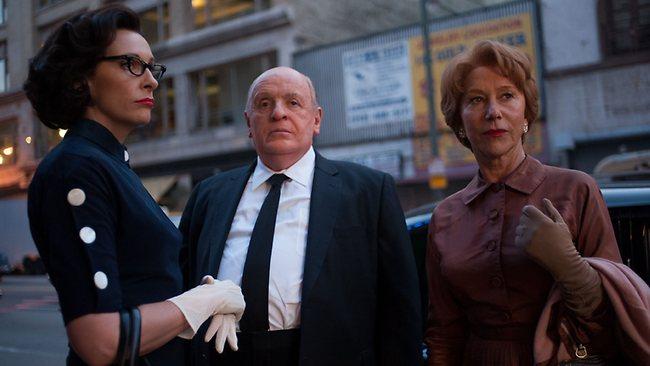Making a killing with Hitchcock
HITCHCOCK is about the making of Psycho which, in 1960, was Alfred Hitchcock's most reviled film and one of his most successful.

HITCHCOCK, as most filmgoers will know by now, is about the making of Psycho which, at the time (1960), was Alfred Hitchcock's most reviled film and commercially one of his most successful. It is based on Stephen Rebello's book Alfred Hitchcock and the Making of Psycho, which I haven't read, and has been adapted for the screen by John J. McLaughlin with Sacha Gervasi as director; his only previous film in this capacity has been the documentary Anvil: The Story of Anvil (2008).
On one level, Hitchcock is an entertaining insight into the making of a classic movie. Anthony Hopkins, though he looks nothing like the veteran British director, does a great Hitchcock impersonation, while Scarlett Johansson and James D'Arcy nail Janet Leigh and Anthony Perkins pretty perfectly.
The film begins in 1959 with the hugely successful premiere of North by Northwest, which Hitch had made for MGM though he was based at the time at Paramount, and which was hailed for its entertainment values. Paramount wanted him to make something similar, but the studio had already gone cold on two of his ideas and reacted with hostility to his plan to film Robert Bloch's chilling novel, Psycho, which was based on the activities of serial killer Ed Gein.
The reluctance of Paramount's boss, Barney Balaban (Richard Portnow) to become involved is more understandable when you remember this really was a ground-breaking project, and not ground that a mainstream studio at the time was very comfortable about breaking. The Production Code - responsible for censoring American films at the time - was a seemingly insurmountable stumbling block. The screenplay called for a bedroom scene between Janet Leigh's (unmarried) character and her lover in which she's dressed only in a bra and slip; and then, of course, there was the notorious shower scene itself, in which Leigh is slashed to death by an unseen killer - this was way beyond the limits of both sex and violence in 1960 (and was one of the reasons many critics at the time threw up their hands in horror that a talented "entertainer" could sink so slow as to depict this kind of stuff).
But Hitch wouldn't be deterred and wound up not only buying the rights to the book and having his loyal assistant, Peggy Robertson (Toni Collette), buy up as many copies as she could to keep the "secret" safe, but he undertook to finance the production himself in exchange for a hefty percentage of the profits, a deal arranged by his wily agent, Lew Wasserman (Michael Stuhlbarg). What Hitchcock doesn't explain is that Hitch - who at this time was producing and occasionally directing a hugely popular weekly television program, Alfred Hitchcock Presents - decided to cut costs by using a television crew, rather than a movie crew, to make Psycho.
Hitchcock is on the mark in its depiction of the way Hitch personally engineered the marketing of the completed film, demanding that cinemas that screened it agree to a stipulation - unheard of at the time - whereby latecomers would not be admitted after the start of the feature. This created an enormous buzz and, since very few stills from the film were made available and reviewers were obliged to see the film with the public at initial screenings, the first Psycho viewers - me included back in 1960 - were only dimly aware of what the film was about and what to expect.
All of this is convincingly and, occasionally, wittily presented; where Hitchcock seems to me to falter is in its depiction of Alma Reville (Helen Mirren), Hitch's wife and regular collaborator. According to McLaughlin and Gervasi, Alma was a glamorous figure whose flirtation with Whitfield Cook (Danny Huston), a screenwriter, made her husband jealous and affected his work on the film.
Hitchcock also suggests Alma directed the notorious scene in which the detective, Arbogast, is murdered when Hitch was incapacitated (actually, Hitch went on record that an assistant, Hilton Green, originally directed this scene because he was ill but that he, Hitchcock, was forced to re-shoot the scene and that none of Green's footage remained).
I never met Hitchcock or Reville, but everything I've learned about them from people who knew them, and everything I've read, suggests that though an undoubtedly valued collaborator, Reville was far from the sophisticated woman portrayed here by Mirren. Wives in Hitchcock films were often rather quiet, dowdy women, like the nervous and compliant wife played by Dolly Haas in I Confess (1953) whose name, not coincidentally, is Alma. Mirren, a fine actor, gives an enjoyable performance, but I'm certain she's nothing like Reville and portraying the character in this way does the film as a whole a disservice. It's a shame, when so much else in the film is so right.
Hitchcock (M)
Limited National Release



